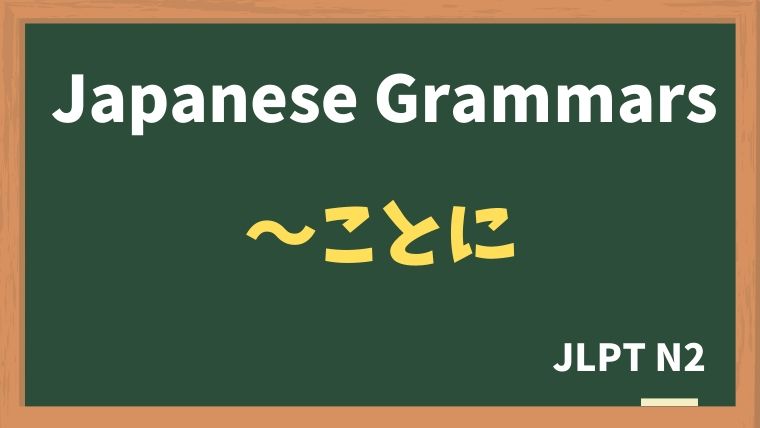
Explanation:〜ことに
fa-check-circleMeaning
”〜ことに"
"It is 〜 that"
Used to emphasize the speaker's feelings or emotions about a certain situation. It often appears before adjectives or emotional verbs, drawing attention to how the speaker feels about the event that follows. This phrase is commonly used in both positive and negative contexts.
fa-check-circleForm
V(ta form)+ことに
イAい + ことに
ナAな + ことに
fa-check-circlePoints
- Emotional emphasis: "〜ことに" highlights the speaker's emotional response to a situation.
- Common pairings: It is often used with adjectives or verbs that describe feelings (e.g., "残念なことに" (unfortunately), "嬉しいことに" (fortunately)).
- Formal tone: This phrase adds a somewhat formal tone to the sentence, making it suitable for written or formal speech.
fa-check-circleJLPT Level
N2
Sample sentenes
残念なことに、行きたかった大学の試験に落ちてしまった。
Unfortunately, I failed the entrance exam for the university I wanted to go to.
嬉しいことに、来年から日本へ留学できることになった。
To my delight, I will be able to study abroad in Japan starting next year.
めずらしいことに、今日はトムさんがおごってくれるそうだ。
Surprisingly, Tom is treating us today.
ラッキーなことに、旅行中は一度も雨が降らなかった。
Luckily, it didn't rain even once during the trip.
驚いたことに、ジェームスさんの日本語はまだ中級レベルなのにJLPT N1に合格してしまった。
To my surprise, James passed the JLPT N1 even though his Japanese is still at the intermediate level.
悲しいことに、ペットが死んでしまった。
Sadly, my pet has passed away.
Vocabulary
| Japanese |
English | |
| 残念な | ざんねんな | unfortunate |
| 珍しい | めずらしい | rare |
| - | ラッキーな | lucky |
| 驚く | おどろく | to be surprised |






